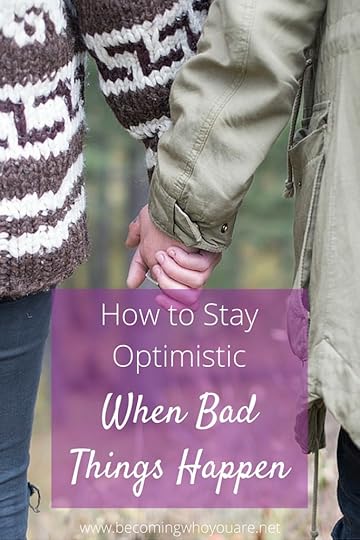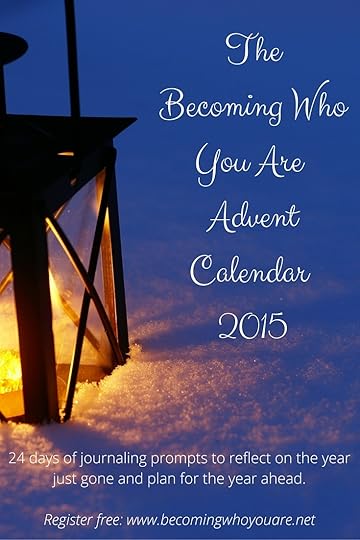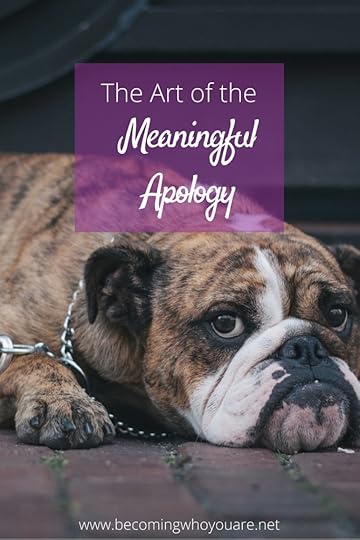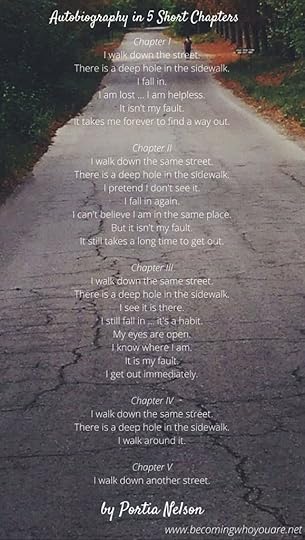Hannah Braime's Blog, page 21
December 4, 2015
The Powerful 3-Word Phrase That Makes Me a Better Person
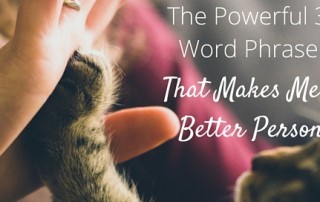
Real-talk time: I have not loved 2015. If there was one word to sum up my experience of this year, it would be “relentless.” A lot of good stuff has happened, alongside a lot of challenging and not-so-good stuff. One thing I will be taking forward from this year, though, is a special 3-word phrase I picked up from Tara Swiger. This phrase has helped me show up with more patience and compassion (and generally be a better person) many a time over the past 12 months, and it’s something I plan to continue.
That phrase?
“Assume the best.”
I’ve used this phrase when someone has done something that leaves my inner social justice warrior ranting and raving. I’ve used it when someone has done something mind-bogglingly violating. I’ve used it when I’ve encountered those all-too-easy-to-escalate misunderstandings. I’ve used it with certain people who have behaved with less-than-OK integrity. I’ve also used it to negotiate periods of deep self-judgement.
Important note: Assuming the best is not the same as pretending something hasn’t happened. It’s not gratitude through gritted teeth. We can assume the best and still acknowledge that we don’t accept certain behaviours. Rather, it’s about being as generous as we can with our interpretations about why someone behaved in a certain way.
One of the most helpful things about assuming the best is that it defuses potentially high-drama situations. It’s all too easy to take that unanswered email, that friend who forgot our birthday, or that tone of voice, and make it all about us.
They must not have answered that email because they don’t like me.
She must have forgotten my birthday because she doesn’t care as much as I do.
They must have spoken to me like that because I did something wrong…
We’re wired to look for potential threats and negative happenings in life. Historically, this mindset has helped us survive. Emotionally, it can lead us to have a victim mentality and be just a teensy bit self-involved.
Add this 3-word phrase to your toolbox for more patience and compassion.
Click To Tweet
Assuming the best helps us step out of the “mememe” frame of mind and look at the other alternatives. For instance, the person who didn’t answer your email might have received 300 other emails that day before yours. The friend who forgot your birthday might have been dealing with a sudden work crisis and left the office drained and empty at 10pm. The person who used that tone of voice might have eaten a dodgy prawn sandwich for lunch.
Assuming the best doesn’t excuse icky behaviour. Nor is it a license for people to treat us poorly; I believe healthy boundaries is the ultimate form of kindness, to ourselves and others.
Instead, assuming the best is as much for our own benefit as it is for the other person’s. It’s a chance for us to say no to the drama. It’s a chance to practice compassion with everyone (including ourselves). It’s a chance to extend an olive branch in our most important relationships. It’s a chance to be a better person in our daily dealings with other people. And, whatever the situation, it’s a chance to wish other people well on their journey as we move forward with ours.
December 1, 2015
November Reads
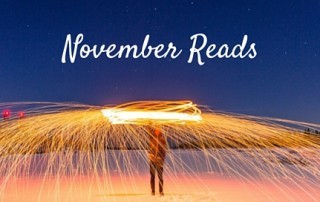
It’s a new month, which means it’s time for more reading recommendations. My favourites from November were The Rational Optimist (an inspiring perspective on the modern world) and 13 Things Mentally Strong People Don’t Do (terrible title, but great content!).
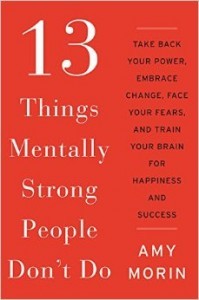
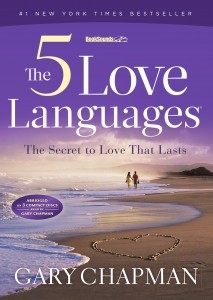
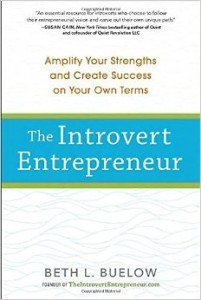

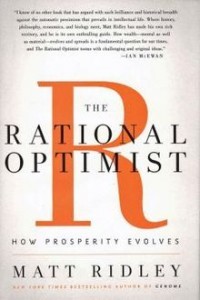
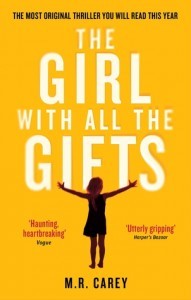

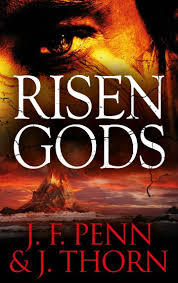
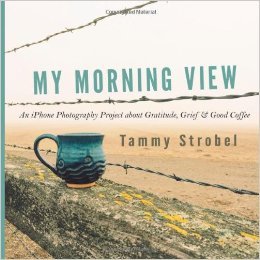
What were your favourite reads from the last month? Leave a comment and share your recommendations.
Image: J.D. Weiher
November 26, 2015
How to Stay Optimistic When Bad Things Happen
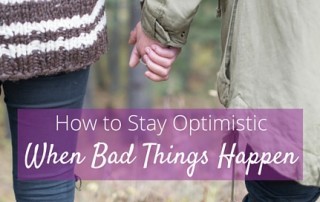
As much as we don’t want them to, bad things happen in life and the world. Sometimes they happen in drips and drops; sometimes these bad things arrive in a crashing torrent. And amongst all the questions these bad things provoke, the most important is always: how do we move forward from these bad things in a way that’s constructive, and promotes growth and healing?
I’ve arrived here: the only constructive way to move forward is with rational optimism.
I say rational optimism because rose-tinted pie-in-the-sky over-optimism is just as harmful as extreme pessimism. I feel all the feelings when I hear about death, murder and tragic and unjust things happening in the world. But I feel these things, and I feel optimistic because the reality is we have a lot to be optimistic about.
Here are a few things I find helpful to remember:
1. Look at the bigger picture
Despite the bad things that have happened recently, here is the truth: the world is a less violent place than it was 30 years ago.
This isn’t something you’d believe watching the news, but it’s reality, as this article by Stephen Pinker and Andrew Mack explains:
“Though numbers for the entire world exist only for this millennium and include heroic guesstimates for countries that are data deserts, the trend appears to be downward, from 7.1 homicides per 100,000 people in 2003 to 6.2 in 2012… The world is not falling apart. The kinds of violence to which most people are vulnerable—homicide, rape, battering, child abuse—have been in steady decline in most of the world. Autocracy is giving way to democracy. Wars between states—by far the most destructive of all conflicts—are all but obsolete. The increase in the number and deadliness of civil wars since 2010 is circumscribed, puny in comparison with the decline that preceded it, and unlikely to escalate.”
It’s also helpful to look at the bigger picture regarding our quality of life.
People are in general living longer, medical technology and treatments are better than they’ve ever been. We have more resources in the form of food, shelter, and material goods than we’ve ever had before.
Despite what we see and hear, the world is a less violent place than it was 30 years ago.
Click To Tweet
On a self-actualisation level, people have more autonomy over their lives than ever. We don’t need to rely on school or university for education; we can seek it out ourselves. Someone in Cameroon can go online and take an MIT class. We can print 3D objects! The gatekeepers of knowledge have largely been removed and everything I’m using to share this with you now was created within the last 80 years. I don’t know about you, but I find that pretty mind-blowing.
2. Stop watching the news
I haven’t owned a TV for nearly seven years now, and so I haven’t really watched the news during that time. And far from missing out on things, I’ve not missed it at all. In fact, it’s had a net positive effect on my life.
For a variety of reasons, the majority of the news we tend to hear and see is about negative events in the world. In the age of social media, bad news spreads like wildfire, stokes people’s emotions and grips our attention for longer than it would have a few years ago. One of the reasons the world seems like a more violent place isn’t because it objectively is; it’s because communication is much better now than it was even a decade ago.
As counter-intuitive as it sounds, it’s a good thing.
Here’s another quote from the Pinker and Mack article:
“Too much of our impression of the world comes from a misleading formula of journalistic narration. Reporters give lavish coverage to gun bursts, explosions, and viral videos, oblivious to how representative they are and apparently innocent of the fact that many were contrived as journalist bait. Then come sound bites from “experts” with vested interests in maximizing the impression of mayhem: generals, politicians, security officials, moral activists. The talking heads on cable news filibuster about the event, desperately hoping to avoid dead air. Newspaper columnists instruct their readers on what emotions to feel.”
The news is not a reflection of reality, and we do ourselves a huge favour when we stop treating it like one.
3. Be a beacon, not a black hole
I don’t believe bad things happen for a reason. I know that bad things happen. Period. They happen. And so it’s up to us to make of them what we will.
I choose to view these as a reminder of what’s important to me in life.
It’s a reminder to prioritise what’s truly important to me. It’s a reminder to let go of all the petty things I’m susceptible to dwelling on and a reminder that every day I’m alive I have one day less left to live. It’s a sobering thought, but it makes me that much more present and that much more determined to make the most out of the time I do have.
Bad things do happen. And we have a choice how we respond to them. We have a choice whether to get sucked into this black hole of judging, blaming and shaming or whether to be a beacon, shining a light on all the good things that are happening in the world too.
Bad things don’t happen for a reason. They happen, period. We choose how to respond.
Click To Tweet
Take your outrage, your pain, your judgements about what people should or shouldn’t be doing in response to what’s happened, and do something that matters in your own life.
Tell the people you care that you care, spread kindness, volunteer, add 10% more patience to your interactions, donate to a good cause—whatever floats your boat. But let’s focus on sorting out our own house first before we get concerned with how other people should be managing theirs.
We live in a big a beautiful world. It’s not a world without problems, strife and uncertainty. Bad things can happen, and they do happen. But it’s important not to let the problems, strife and uncertainty and these bad things overlook the fact that overall life, in general, is getting better with every decade.
And, as the people who are alive right now, it’s up to us to embrace that fact and use it to carry us forward into the future.
How do you stay optimistic when bad things happen? Leave a comment and share your thoughts.
Image: Jenelle Ball
Are you joining us for the Becoming Who You Are Advent Calendar? Get 24 daily journaling prompts for reflection, dreaming and scheming delivered to your inbox from 1st December. Register for free below:
The post How to Stay Optimistic When Bad Things Happen appeared first on Becoming Who You Are.










November 18, 2015
Are You Joining Us for This Year’s Advent Calendar?
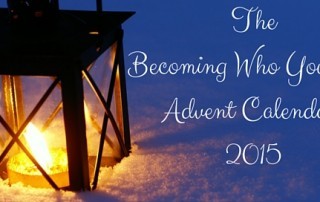
Now in its 5th year (!) the Becoming Who You Are Advent Calender is a community event that gives us space to review the year that has been and dream and scheme for the year to come. It’s an opportunity to add some reflective time to a busy period, and a chance to consciously evaluate 2015 while exploring what you want from 2016.
From 1st-24th December, you’ll receive a prompt from myself or one of the lovely contributors below delivered straight to your inbox. You’ll also receive weekly suggestions for activities and practices that will help you stay connected to yourself.
It’s free to register and much better for you than chocolate :), so I hope you’ll join us in bidding adieu to 2015 and laying some solid intentional groundwork for the next 12 months
Contributors
Contributors to this year’s calendar include:








Register for free
Enter your email below to start receiving emails on the 1st December.
Share the goodness
Join us for the Becoming Who You Are advent calendar: 24 days of reflection and connection.
Click To Tweet
Say farewell 2015 and plan for our next trip around the sun with the BWYA advent calendar.
Click To Tweet
Join the Becoming Who You Are Advent Calendar. Better for you than chocolate & free!
Click To Tweet
The post Are You Joining Us for This Year’s Advent Calendar? appeared first on Becoming Who You Are.









November 9, 2015
The Art of the Meaningful Apology
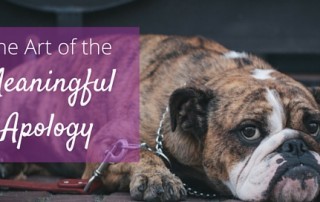
“Apologising with grace and class” is one of those Life 101 classes that would have been very useful in our younger years. We all do (or fail to do) things that warrant an apology at some point and, over time, how we go about our apologies can make or break our relationships.
Being in a long-term relationship, I’ve had a lot of opportunities to practice apologising. I’m definitely not perfect at it (I have a strong competitive streak, which can slide into trying to prove that I am “the one who is obviously right,”) but here are a few things I’ve learned so far about the art of the meaningful apology:
1. “I’m sorry if…” and “I’m sorry, but…” are not apologies
“I’m sorry if you felt annoyed by that” is not an apology. Neither is “I’m sorry I yelled at you, but you were being really annoying.”
We can’t apologise for other people’s feelings, we can only apologise for things we did that lacked empathy, integrity or understanding for the other person.
If you’re not ready to apologise, then don’t apologise. When I look back at times I’ve pulled out these apologies in the past, I’ve lacked generosity, which doesn’t do much for resolving the discussion or mending anything that needs to be mended. An apology doesn’t come with conditional clauses.
An apology doesn’t come with conditional clauses.
Click To Tweet
2. Own your behaviour
Everyone has stuff going on in their lives and everyone is busy, so let’s assume we’re on an even playing field. When we add excuses to the end of our apologies, it diminishes them, so let’s just own up and be straight.
I used to do this all the time with email. I intensely dislike email. I like it slightly more than I like talking on the phone, so I stick with it, but I’ve struggled with the discipline to respond to emails in a timely manner. I used to say to people “Sorry for my slow reply, I’ve been busy,” which was bullshihtzu. Everyone is busy.
Now, I don’t give myself permission to make excuses. If I’m slow responding, I just say “I’m sorry.” If there’s a valid reason I’m slow (e.g. I’ve been ill), I explain why I’ve been away. Even better, I stick an autoresponder on so people know why I’m not responding. And guess what? Without excuses to fall back on, I’m generally a lot better at responding in a timely fashion.
3. Sort out your feelings in your own time
Some people approach apologies by launching into self-blame and recrimination, explaining that they are really, truly sorry, they’ve thought about their behaviour, and they think it all stems from that incident when they were five when…
An apology’s focus is on the other person, not on you. When we turn apologies into our own personal counselling session, all we’re communicating to the other person is “I’m too absorbed in my own stuff to truly empathise with you, and not only have I wronged you but I now expect you to sit here and listen to my life story.”
An apology’s focus is on the other person, not on you.
Click To Tweet
Nine times out of ten, people who do this are truly sorry. They think that, if they share their internal self-blame, it will show just how sorry they are. But all it does is turn the focus back onto them, rather than the person they’re apologising to.
Thinking about why we did or said the things we’re apologising for is important. But it’s something we process in our own time so we can show up and apologise with an open and generous presence.
4. Make amends
This is the most important thing, and the thing we most often overlook: a genuine apology is a sincere effort to make amends.
Making amends is about taking action to repair the damage you have done. If you borrowed someone’s jacket and end up staining it, get it professionally cleaned or even get them a new stain-free one. If you forgot someone’s birthday, surprise them with a small gift a few weeks later.
Yes, making amends might cost you—both in terms of your bank balance and your ego—but the practical cost is more than worth when it comes to your integrity.
What tips do you have for making meaningful apologies? Leave a comment and share your thoughts.
Are you joining us for this year’s BWYA Advent Calendar? Register to receive short and sweet daily email prompts from 1st to 24th December. Find out more and register for free here.
The post The Art of the Meaningful Apology appeared first on Becoming Who You Are.









November 6, 2015
Recommended Reading: October
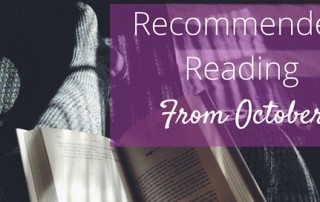
I’ve been going through the results of the recent Becoming Who You Are community survey this week. One request that came through loud and clear is that you really want suggestions for recommended reading! Hooray for books. With that in mind, here are my favourite reads from October:
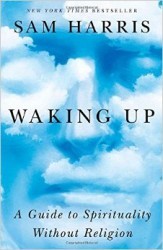
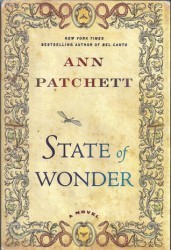
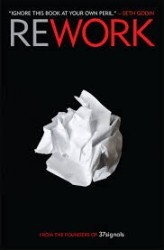
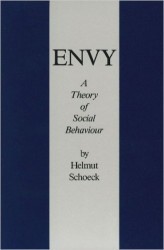

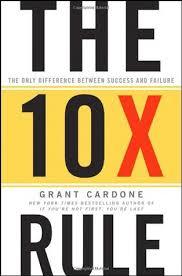
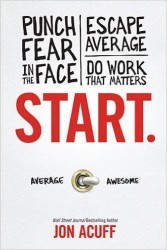
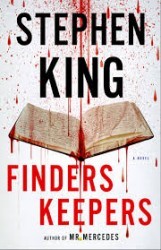
What were your favourite reads from the last month? Leave a comment and share your recommendations.
Image: Kate Williams
The post Recommended Reading: October appeared first on Becoming Who You Are.









November 2, 2015
Autobiography in 5 Short Chapters by Portia Nelson

Chapter I
I walk down the street.
There is a deep hole in the sidewalk.
I fall in.
I am lost … I am helpless.
It isn’t my fault.
It takes me forever to find a way out.
Chapter II
I walk down the same street.
There is a deep hole in the sidewalk.
I pretend I don’t see it.
I fall in again.
I can’t believe I am in the same place.
But it isn’t my fault.
It still takes a long time to get out.
Chapter III
I walk down the same street.
There is a deep hole in the sidewalk.
I see it is there.
I still fall in … it’s a habit.
My eyes are open.
I know where I am.
It is my fault.
I get out immediately.
Chapter IV
I walk down the same street.
There is a deep hole in the sidewalk.
I walk around it.
Chapter V
I walk down another street.
Is it time for you to walk down another street? I have four coaching spots open this month and one of them could be yours. Find out more and get started here.
P.S. Save this poem here:
Images: Mad House & Carli Jean
The post Autobiography in 5 Short Chapters by Portia Nelson appeared first on Becoming Who You Are.









October 29, 2015
#89 Envy: What It Means and Why It Matters with Jake Desyllas
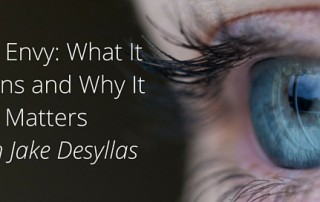
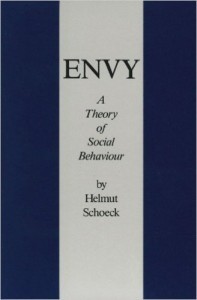 In this episode, I’m sharing a recent conversation with Jake (host of The Voluntary Life and my husband) about the book Envy: A Theory of Social Behaviour by Helmut Schoek.
In this episode, I’m sharing a recent conversation with Jake (host of The Voluntary Life and my husband) about the book Envy: A Theory of Social Behaviour by Helmut Schoek.
Envy is one of those topics that is still a huge taboo, and consequently doesn’t get nearly as much attention as it deserves. It’s something we all experience, yet it’s also difficult to talking about.
In this conversation, we cover some of the book’s key ideas, interesting hypotheses about why we experience envy, the difference between envy and jealousy and what to do when you experience envy.
Useful Links
Envy: A Theory of Social Behaviour by Helmut Schoek
Say Hello
Jake
Twitter: @jakedesyllas
Facebook: The Voluntary Life Community
Website: thevoluntarylife.com
Hannah
Twitter: @hannahbraime
Facebook: The Becoming Who You Are Community
Website: becomingwhoyouare.net
Subscribe to the Podcast
Intro and outro: Stephanie Murphy
Image: Sean Brown
October 26, 2015
Relax Restore Revive: Join us for this free 7-day self-care course

It’s the end of October (already!) and we’re entering one of the most paradoxical times of the year. The Gregorian Calendar is coming up for renewal, which means it’s a great opportunity to reflect on the last 300-and-something days and start thinking about dreams and schemes for the next year.
This also has the potential to be one of the craziest times of the year in terms of energy, attention, time, money, and pretty much every finite resource we have.
With that in mind, I’m running Relax Restore Revive for the first and only time this year. This free course is about opening up opportunities for self-connection, restoration, and a deeper sense of energy and purpose for the holiday season.
Once you’ve entered your email, check your email to confirm your subscription.
Starting next Monday (2nd November), you’ll get an email each morning with a quote, question, activity, or other tidbit of food-for-thought around the theme of “Relax, Restore, Revive”.
By the end of the week, you’ll have had a chance to reflect on what’s serving you (and what isn’t), tap into your most fundamental needs, and create a mini-plan for how to engage with these needs daily going forward.
Do you know someone who could use some relaxation, restoration, and reviving? Use the tweets below to share the love:
Relax, Restore and Revive this November with this free 7-day self-care course
Click To Tweet
Make self-care part of your daily life with this free e-course starting 11/2
Click To Tweet
7 days of self-care magic delivered straight to your inbox. Register for free here:
Click To Tweet
October 19, 2015
Feeling Directionless? How to Spend Your Time in a Way That Matters
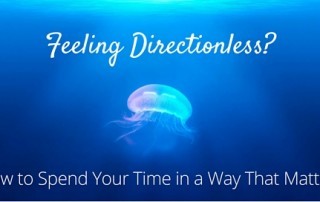
Whenever someone joins the Becoming Who You Are community, I invite them respond and share a little about themselves. A common thread that comes up in these emails is feeling directionless and wanting to create a sense of meaning and purpose in life.
I get it. This is hard. There’s a lot of stuff that can get in the way of our clarity around what it looks like to live a fully self-expressed life. Many of the initial dreams and goals we have for ourselves are things we think we should be doing or having, rather than things we truly want. We are also masters at getting in our own way through procrastination, distraction, and more.
But it is doable.
It’s not a linear path, the destination is rarely obvious, the journey is full of twists and turns, ups and downs.
But it’s a journey you’re on anyway, whether you’re conscious of it or not.
It takes as much energy to avoid something as it does to do it.
Click To Tweet
I wrote about a couple of tools I’ve found helpful for identifying and pursuing direction on my other website a couple of weeks ago and you can read it here:
How to Design a Bucket List for a Fulfilling and Meaningful Life
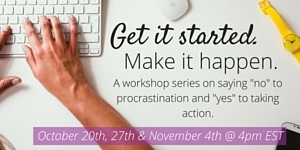 P.S. If you’re ready to make the most out of your time here, join us for Get it Started, Make it Happen, a workshop series on saying “no” to procrastination and “yes” to action.
P.S. If you’re ready to make the most out of your time here, join us for Get it Started, Make it Happen, a workshop series on saying “no” to procrastination and “yes” to action.Click here to register for free
Image: danist soh

